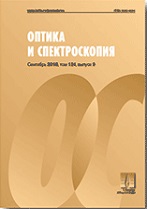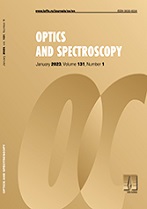|
All-Russian Scientific Conference "Modern Problems of Optics and Spectroscopy", Troitsk, Moscow, November 28-29, 2018
Spectroscopy of condensed states
In which cases and why the standard model of tunneling two-level systems describes the low-temperature inner dynamics of real glasses inadequately
Yu. G. Vainerab
a Institute of Spectroscopy, Russian Academy of Sciences, Troitsk, Moscow
b Moscow Institute of Physics and Technology, Dolgoprudny, Moscow Region
Abstract:
Experiments carried out in recent years using single-molecule spectroscopy to study the low-temperature dynamics of some molecular solid-state media with a disordered internal structure made it possible to obtain new information on the dynamics of such media at the local level. In some substances, the time-dependent behavior of the majority of individual spectra of single fluorescent molecules introduced into the studied medium as a local spectral probe corresponded to the predictions of the standard model of tunneling two-level systems. In others, the behavior of most of the spectra of single molecules was more complicated, which it is difficult to describe in the framework of the standard model. This paper is devoted to the analysis of the results of studies of low-temperature spectral dynamics of single fluorescent molecules in a number of disordered molecular systems (amorphous polyisobutylene, toluene, cumene, propylene carbonate). The observed deviations from the predictions of the theory are associated with the microstructure of the systems under study and the sample shape. Possible reasons for the deviations of the observed local spectral dynamics from the predictions of the standard model of tunneling two-level systems are discussed. Inadequately.
Keywords:
amorphous media, glass, single-molecule spectroscopy, tunneling two-level systems, low-temperature dynamics, fluorescent molecules.
Received: 25.02.2019
Revised: 25.02.2019
Accepted: 15.03.2019
Citation:
Yu. G. Vainer, “In which cases and why the standard model of tunneling two-level systems describes the low-temperature inner dynamics of real glasses inadequately”, Optics and Spectroscopy, 127:1 (2019), 46–54; Optics and Spectroscopy, 127:1 (2019), 40–48
Linking options:
https://www.mathnet.ru/eng/os663 https://www.mathnet.ru/eng/os/v127/i1/p46
|


| Statistics & downloads: |
| Abstract page: | 42 |
|





 Contact us:
Contact us: Terms of Use
Terms of Use
 Registration to the website
Registration to the website Logotypes
Logotypes









 Citation in format
Citation in format 